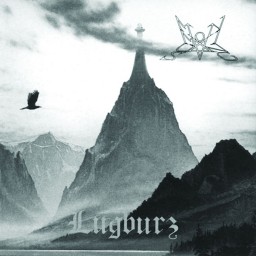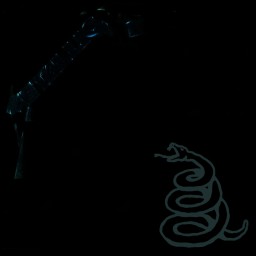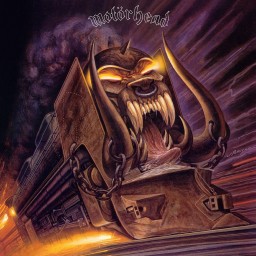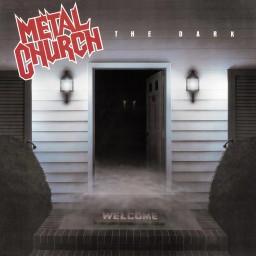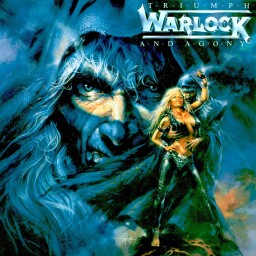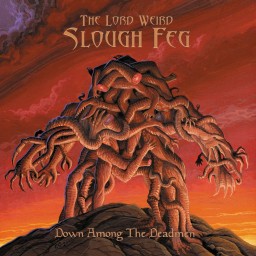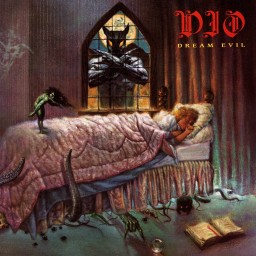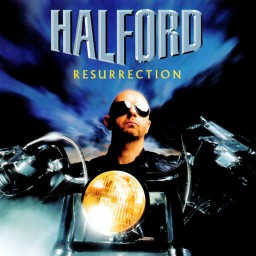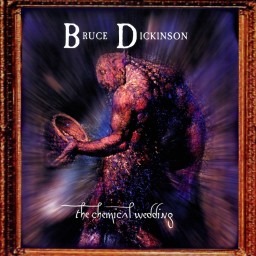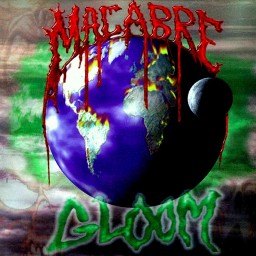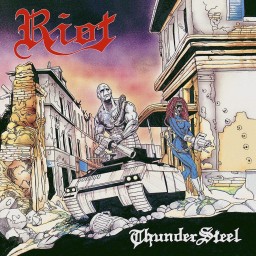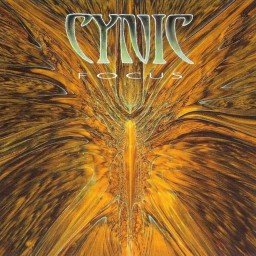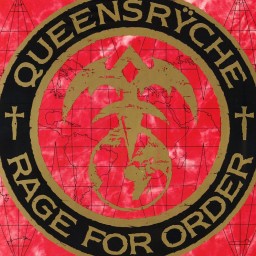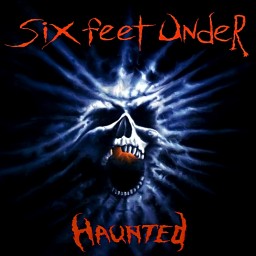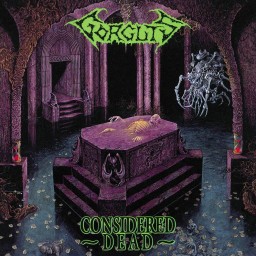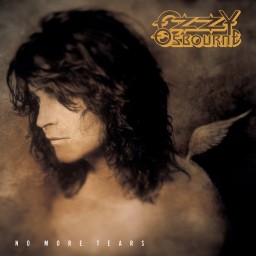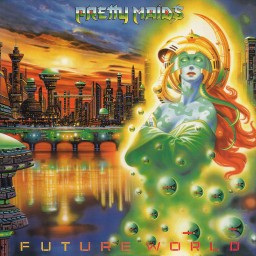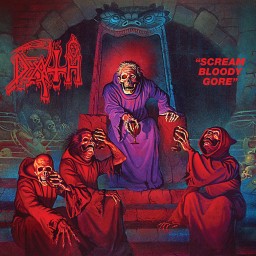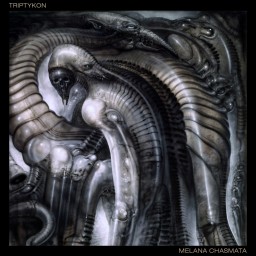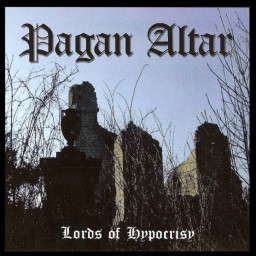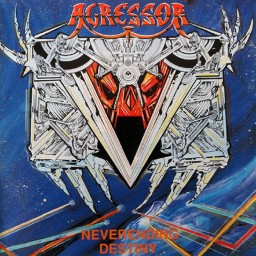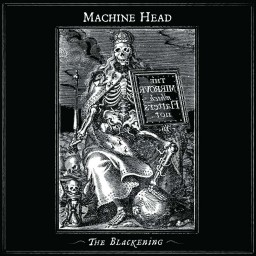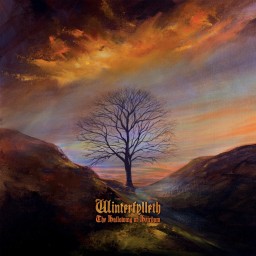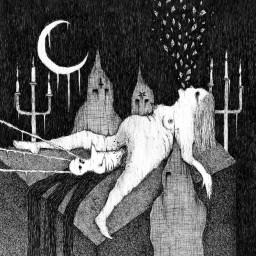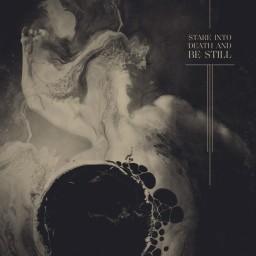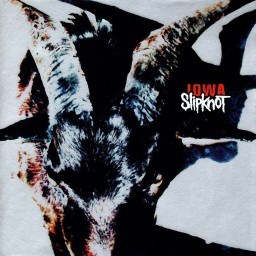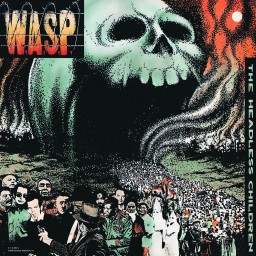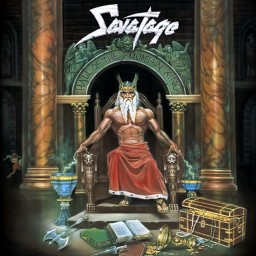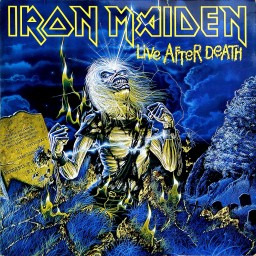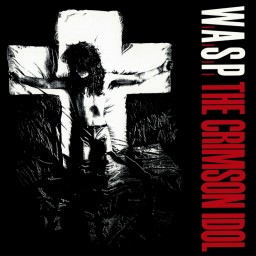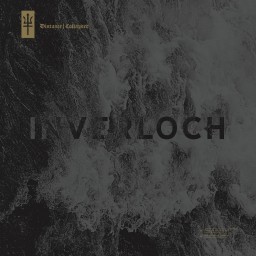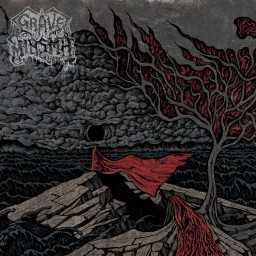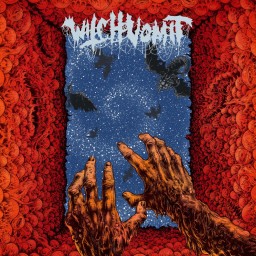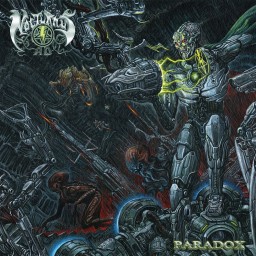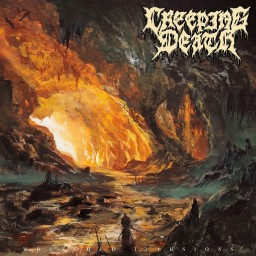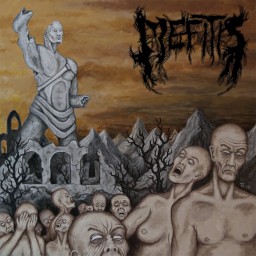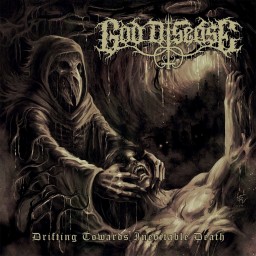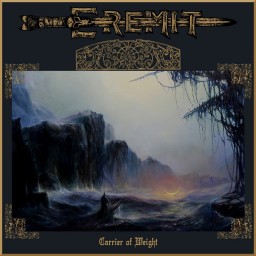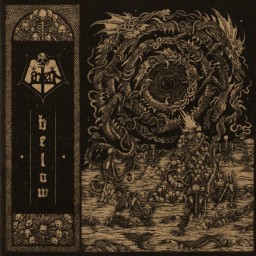Vinny's Reviews
Summoning's opening foray into the world of black metal is the authentic harsh and abrasive style most fans of the genre love to hear. It is a complete misrepresentation of the rest of their discography mind so is not a good gauge of future offerings which is both a gift and a curse depending on where you sit on the band's unique sound. It sounds very much like a debut album would do full of excitable riffing and kvlt vocals but it also suffers from this same enthusiasm in equal parts.
Lugburz is instantly forgettable as a record because the quality control was more or less switched off during songwriting. All ideas were deemed good ones it seems and the album swallows and regurgitates itself over a number of times as passages and tracks just merge into one another with riffs getting used over and over again. The authenticity factor is obvious as I say but the actual intelligence behind the composition of a track is not the best.
The vocals never quite get to add depth or dimension to proceedings with any notable howls or shrieks to entice the ear beyond the repetitve nature of most tracks. As is the case with most albums that suffer from this lack of invention, the experience seems longer than it actually is and you find yourself waiting for it all to end or itching to press the skip button.
Top marks have to be given for the effort even if the delivery is immature and as I say above this is the only album the band released that really sounded this way, the rest of the back-catalogue being more atmospheric and epic in nature. Here this is only hinted at by the intro track at the beginning of the record so if you are a fan of the latter output and have never got round to their earlier stuff you can save yourself the bother on this.
Genres: Black Metal
Format: Album
Year: 1995
All good things must come to an end they say. Too much of a good thing is bad for you, etc, etc. Quotations aside, Metallica had actually peaked for me before they went all accessible on this record. The technical thrashing agility of ...And Justice For All was the band at the pinnacle of their powers, showing their maturity as a group and promising yet bigger and better things to come. And then came their self-titled release...
I actually don't think it is a bad record and would actually go as far as to say that anyone would be hard pushed to find many other albums that unleashed such a perfect blend of thrash metal and more traditional metal influences so effortlessly. At the time of the release I was actually playing the record like five times a day and had no qualms about the ballads or more commercial aspect of the album overall. I stand by those sentiments somewhat to this day, albeit with acknowledgment that the impact of it has diminished somewhat now I am the proud owner of each album that came prior to this.
Although nowadays it comes up short in comparison with anything the band did before it there's no denying that there's tracks here that are forever engraved in the ridges of my memory. Whether it is the riff to Enter Sandman or the eastern style promise of the guitar on Wherever I May Roam or even the chopping rhythm of The God That Failed there's stuff here that has quality if not edge. It is precisely the kind of record that gets recorded that sends bands stratospheric (due in no small part to Bob Rock's input) and ticks all the boxes for that journey. There's not one song on here that wouldn't sound just as good live as it does in the studio.
As I mention above, there's just too little in the way of comparison to previous output to benchmark this record as being that good a Metallica album. It sounds like Metallica most definitely but it lacks for me the cut and thrust of a thrash metal band. It could be the polish of the production job but I get no real feel from the album nowadays ulike when I am listening to the potent rage of Master of Puppets for example. If like me, you believe the band might as well have split up after this release then it is not a bad record as such to hang your hi-top trainers up on but in some ways I would have been happier to see them call it quits immediately after ...And Justice For All and protect their legacy somewhat better.
Genres: Heavy Metal
Format: Album
Year: 1991
I often find that listening to a Motörhead album is a bit like catching up with an ambitious friend or relative who come over to stay or visit. They always start off full of promise from their past endeavours and successes but soon enough the gaps start to appear in their plans for wealth beyond belief or delivery of some game-changing solution that will rock the world. You find yourself nodding along politely, thinking to yourself that this is the same conversation you had the last time you caught up but you don't want to upset their feelings so you just keep humouring them. Come the end of the visit, you stand waving them off at the end of the driveway inviting them to come back soon, when inside a voice is saying "but don't make it too soon!"
After the mediocre Another Perfect Day the line-up of the band was revised completely. The normally superb Brian Robertson was gone after one album and Phil had vacated the drum seat. Pete Gill had stepped into Phil's shoes (for his one and only Motörhead full-length release) and we now had two guitarists in the legendary Würzel and Phil Campbell. The revised line-up did nothing to reinvigorate the band at first listen and this is perhaps to be expected with them all being relatively new to things. However, the band do all sound on the same (albeit predictable) page. What we get is a return to the sex, drugs and rock n' roll themed song writing that was missing on the previous album. Back in place also therefore is the tongue in cheek attitude and a loss of desire to talk about current affairs and the boring stuff.
Sadly though, although the pace and tempo is a lot more consistent and upbeat, there's a sense of a tired sound to things. Even on the charging Claw with its cock out doing a helicopter mentality, it still feels a bit flat. Throughout the whole record there's the usual rock n' roll riffs on display and the slower paced/mid-tempos of Another Perfect Day aren't around most of the time. This gives Würzel and Campbell chance to flex their pecs with racy solos and rampant riffs which at least gives the fan hope for future releases with the partnership involved. But this energy just feels limited, possibly as part of a bedding in process as I alluded to earlier. Gill is nowhere in the mix in all honesty and feels buried under the rest of the instruments in the main which might also account for the lack of oomph!
I also think the album lacks at least one anthem even. I used to think was the title track but listening back today I realised that I actually prefer the Sepultura cover of the track. Other than perhaps Built for Speed there are no memorable songs at all here and so it just lacks reward for sitting through the many mediocre tracks hoping to be embellished with a anthem or two.
Genres: Heavy Metal
Format: Album
Year: 1986
The great thing about this Guardians: Heavy Metal - The 2nd Era challenge is that I am getting to revisit so many albums from my youth and if nothing more, this has been a great nostalgia trip. I can remember when Metal Church adorned a rare status in my vinyl collection of being one of the few bands with more than one LP in there as at one point I had this record and A Blessing In Disguise in my collection. At the time I think The Dark had the edge over the latter release. It looked like the front cover to a horror movie for a start whereas A Blessing in Disguise looked like a family photo shoot in comparison.
Given my dislike of the debut album (or at least my acknowledgment that it is highly overrated) it was refreshing to hear David Wayne again during my research for this review. Given my general dislike of the self-titled some two years prior to this I had kind of dismissed Wayne as only being around for one decent release and in doing so had been doing his performance on the sophomore release a little injustice. As I say, this is the only release I have time for with Wayne on vocals but his presence really came across today on the final run through I did coming into this review. His gruff and nasal style is consistent but the delivery of it is varied, sometimes coming across as tuneful and accessible, others more aggressive and thrashy whilst at times it is almost spoken word. Wayne's vocals are tempered perfectly against the pace and tempo of the music and with the step up in the quality of the album in comparison to the debut his performance is more accessible and the excellence of him is much more obvious.
There's a real high-point early on in the record with the thrashing energy of the anthemic Start the Fire, a track that often reminds me of Overkill whenever I hear it. It is an infectious track, placed really well after the promising Ton of Bricks and makes for a great start to the record. Whilst I can't deny that Method to Your Madness and the superb Watch The Children Pray showcase superbly the quality of the song writing, coupled with Date's crisp yet not too polished production letting all the individual parts shine they are great tracks early on in the record. Vanderhoof and Wells' guitar work is sublime more or less throughout the album but again the lead work in particular is really prominent and memorable on these tracks.
I think the album arrangement is great, the balance of a few higher tempo tracks running before a more measured and sultry track comes in makes for a very palatable experience. Kicking off side two with the menacing title-track is a great move, that threatening build sets the mood perfectly to introduce the second part of the album and as it runs its course the track manages to maintain this atmosphere well without sacrificing any power along the way. After the blistering yet not all that memorable Over My Dead Body this is a marked step back up in quality and puts the album firmly back on the tracks.
Things do tail off markedly though during the rest of the album after Psycho bashes its way clumsily through three and a half minutes of weapons grade filler we get the more promising Line of Death that follows a similar tempo and poorly structured format also. There's a section in the latter song that I swear is the same bridge as used on the title-track as well. However, there is some aspect of a measured approach around the halfway mark that helps avoid the skip button being deployed for two songs in a row. With Burial at Sea ensuring there's at least one more quality track before the album gets done it's hard to not see The Dark as a success overall. It is consistent in terms of quality (in the main) and is probably the most entertaining Metal Church album in the discography. Whilst it is far from flawless, it is easily their most promising offering with Wayne in the band and there's a sense of sadness that this was probably the album that would have lined up their next offering as potentially their finest hour given the strength on display here. Obviously that wasn't to be and the band more or less started again when it came to their third release.
Genres: Heavy Metal
Format: Album
Year: 1986
Warlock in 1987 where a different concept to the band that came together some three to four years earlier. Having already lost Rudy Graf ahead of True as Steel the subsequent departure of Peter Szigeti in the intervening year between their third and fourth record meant that neither of the founding guitarists where now present in the band. Remaining founding member Eurich was the only original member left standing after the departure also of Frank Rittel. With longstanding vocalist Doro still around it kind of sounds to me that she carries the band through much of Triumph and Agony.
That's not to say that Arvanitis and Bolan aren't capable guitarists. Indeed, I find the guitar performances on here really good. They are energetic and full of flair when in full-flow with the leads holding my interest levels well. It is clear though that they are sat back in the mix a little too much and would definitely benefit from a little more volume in places. Doro's vocals sit upfront and it is her gruff and sensual voice that is the consistent take away from the album each time I listen to it. Eurich's drums feel a little stifled too in all honesty but you can hear all parts of the instrumentation without having to search too hard and there is cohesion to the band performance and each track is also able to standout in its own right.
Even the dreadful Metal Tango has identity at least (if not a disparaging lack of quality also). Taken as a whole, the album is entertaining, catchy and memorable. They are working with an established formula here with hi-octane riffs and smattering of NWOBHM plod still present, balancing the mix with a couple of more slower tracks like Make Time for Love. I don't find the album as fantasy-themed as the artwork suggests (top marks for that Geoffrey Gillespie) and there's an undercurrent of political unrest here in some songs.
So, the last incarnation of Warlock went out with a bang at least ahead of the legal disputes that saw Doro go it alone for the rest of her career.
Genres: Heavy Metal
Format: Album
Year: 1987
In our quest to be able to pigeon-hole everything in our listening habits we occasionally come across a band whose sound is so very clearly rooted in a particular genre, but it touches more than one influence outside of that niche that you question what you are listening to. Down Among the Deadmen is one such album. The majority of what you hear is straight up heavy/traditional metal. Stacked full of racing riffs and galloping rhythms, it is an album that draws extensively from NWOBHM as well as being comparable to the likes of Cirith Ungol, Manilla Road and Brocas Helm. There are even hard rock elements of Thin Lizzy around in here.
At the same time, you get an undeniable sense of Skyclad-like folk metal traversing tracks as the band continue to tell their tales of Celtic legend that they are so infamous for. But it is not just the elements of different styles that make their third full-length so endearing, in here as well is an almost abandonment of traditional song structure and form. That having been said it is still coherent to the point of being memorable. The stop/start riffing of Walls of Shame at first catches you off-guard, but you soon come to realise that is quite a simple structure that is unique more for its paired-back nature. On tracks like this you hear the Cirith Ungol/Manilla Road influence clearly, but at the same time you also get to hear how tight the band are as a result of this no-nonsense approach to the tracks.
It is impossible not to be caught up in the flowing delivery of the album as it uses a clever combination of storytelling and urgent yet concise song writing to draw you in. At times they seem to charge riffs or hold the revs on the engine of them for the effect of teasing and taunting the listener with the power that is inevitably about to be unleashed. As I move from track to track, I find myself anticipating the tempos and pace of the record with avid glee. Yet Down Among the Deadmen is not a predictable listen by any means. Leads and solos spark off from more rhythmical passages often unexpectedly, enriching the tales being told with lush six string sounds to emphasise points of conflict, majesty, atmosphere or emotion.
Mike Scalzi’s vocals do not occupy the same challenging area as a Mark Shelton or Tim Baker. There’s a theatrical slant to his pronunciation most definitely and it this that keeps things interesting and focused as at its heart this an album with a tale to tell and as such Scalzi fulfils his role perfectly. Tracks conjure wild imagery as they progress, and the superb musicianship adds to this sense of being able to create scenes in your brain and give them a soundtrack at the same time. You really do get a whole band experience here with everything clear in the mix and able to make a notable contribution, therefore.
Gregg Haa’s drumming is measured and yet in the same breath so especially important to the overall success of Down Among the Deadmen due to its power and persistence. I cannot find one track where he is not absolutely on point in delivering a robust and consistent performance yet at the same time still is able to let everything else around him breath easily. The twin guitars of Scalzi and Cobbett synchronise superbly throughout to again emphasise the feeling of cohesion within the recording process.
I do still find it an album that feels a tad too long at thirteen tracks. It is only 50 minutes long, but it feels longer and sometimes I do find myself all nerded out with the constant fantastical tales being told. That having been said, it is not an album that always takes itself so seriously. The marching section at the end of Troll Pack for example feels a little tongue in cheek without pushing the boundaries of being contrived. The album still is an absolute pleasure to listen to end to end and is probably Slough Feg’s finest hour to date. If you like your heavy metal traditional and played by skilful and deft musicians, then you’ll love this to death.
Genres: Heavy Metal
Format: Album
Year: 2000
Dio until lately have been a one album band as far as I was concerned. Beyond Holy Diver I was aware that there were other entries in the Dio back catalogue but for the life of me I could not get around to listening to anything other than what remains the bands finest moment. Coming a whole four years after their debut, Dream Evil offers pretty much the same content as the masterclass in heavy metal they dropped in 1983, although it doesn't necessarily hit the same heights of quality.
The anthems are still here (at least in principle) but they aren't quite as infectious and as a result aren't that memorable. Even the stupendously titled Sunset Superman with its chant like chorus suffers from a lack of traction. The title track, Naked in the Rain and I Could Have Been A Dreamer all hit that sweet spot that you'd expect from a writer like Ronnie with the help of Appice, Bain, Schnell and Goldy who all contributed to the album also. Unfortunately, there's a lot of filler on here also. Overlove, Faces in the Window, All the Fools Sailed Away and When A Woman Cries are all sub par have no impact on the record overall other than to drag it down in the ratings.
Whilst this doesn't make Dream Evil a bad record it doesn't shine in anyway; it is lacking in bite overall even though it bares it's teeth on more than a few occasions over the course of the nine tracks. I find myself kind of waiting for it to get going for a lot of the record and just as it does it seems to falter, often in the same breath. Bain's bass sounds like a more lazy plod and pluck fest this time out and Schnell gets far too much air time on the keyboards to the point of taking the harder edges off most of the riffs. Goldy is still allowed to shine though, his urgent and pressing lead work weaving stories all of their own when they kick in to life and Appice is solid and consistent just like you would expect.
Ronnie's vocal delivery is flawless though, he just knew how to control his voice so well throughout his career and again here the vocals maintain this pattern and even on the weaker tracks they are the star of the show. I am unable to leave my experience of Dream Evil with the same levels of enthusiasm I have seen on other reviews for it and although it does make me want to delve into what came before it in the grey area between the debut and it I can't say I will be visiting the album much moving forwards.
Genres: Heavy Metal
Format: Album
Year: 1987
Rob Halford’s desire to return to a more mainstream metal sound following his excursions with Fight and 2wo always strikes me as coming off as a poor man’s Judas Priest. I mean three years later he re-joined Priest who had been useless without him anyways so for me all two decidedly average album Halford albums did in the intervening three years was just allow him to get all the sub-par material off his chest.
Revisiting Resurrection for this review, I am immediately struck by how weaker than usual Rob’s vocals sound. He seems to be struggling through the title track to maintain that famed high-pitched style of his throughout the track and it seems to be a push too far. At the start of an album, this is not a good sign. Thankfully though Made In Hell is a marked step up in the energy stakes and is a riffy and bashy affair that only suffers from some clunky and naive sounding lyrics. The guitars flex their pecs well and drive the track forwards with only the drums feeling slightly understated and lacking oomph.
Appreciate as I do the need to keep busy and occupied, there still needs to be some quality control applied to making music – even when you are Rob Fucking Halford and are a God in many fan’s eyes. Locked and Loaded again picks up on the hi-octane metal pace of its predecessor but again sounds juvenile lyrically. Whether there is a sub-conscious element here playing on my mind because I know Rob is an older guy and therefore these lyrics sound a tad cringey remains a possibility however, at the end of the day I think this album shows that Priest are more than just Rob Halford and that when left to his own devices he does struggle without the rest of his comrades.
Let us take some time though to acknowledge the consistent positives that do still exist on this album. Lachman and Chlasciak are actually very capable guitarists and whilst I wouldn’t put them in the same class as KK Downing and Glenn Tipton they are a great accompaniment to Rob Halford’s distinct vocals. I would go as far as to say that they do rescue a few tracks and distract me nicely from the less enjoyable tracks, usually with a combination of solid riffing and/or energetic lead work. There is a consistent energy overall to the album and it feels like the teeth and claws are never too far away from being shown, even on the slower tracks there is still an edge.
Although not always well represented in the mix, Jarzombek’s drumming is solid enough and he does not put a stick wrong overall. The guest appearance from Bruce Dickinson however brings me back round to the negative aspects of the record. The One You Love To Hate is probably one of the worst tracks on the album, even the hazy and muffled guitar tone that attempts to inject some variety into the track is not able to save the track. For two well established and capable vocalists to put such a poorly conceived track together is disappointing to say the least.
There is nothing else on here really that alters my opinion that Resurrection is a poorly delivered album with some underdeveloped ideas that just feel hastily pulled together and dropped onto a record as opposed to being composed and written thoughtfully into an album. The final four tracks are all one word titles and have no depth or real quality beyond the odd burst of guitar to show some flair in the throes of the album. Drive might be the worst track Halford has ever been involved in but more or less everything beyond the Dickinson collaboration is clearly not written by a band with any quality control filter engaged.
Genres: Heavy Metal
Format: Album
Year: 2000
For a person who prefers Di’anno-era Maiden to Dickinson-era Maiden, Bruce stepping out on his own was not a venture of any particular interest to me. His exit from the band in 1993 did not shake my world in all honesty. I recognised that their best years were already behind them at that point and the momentum built up throughout his twelve years in one of the world’s biggest heavy metal bands was most definitely on the wane.
Having witnessed even the furore around Tattooed Millionaire, I still was not curious enough to listen to it feeling that the snippets of the title track and that fucking irritating Bowie/Mott the Hoople cover I had picked up had done little to float my boat. The Chemical Wedding has been an album talked about in high praise for years of me frequenting internet forums or reading reviews in magazines or online. I think the reason why I still left the album overlooked was simply down to being much more interested in extreme metal for the latter part of my listening life and so it is an album that has always remained on my “to-do list”.
Researching the release for this clan challenge certainly educated me on a few things I had no idea about. I had no knowledge of Adrian Smith’s involvement for instance or that the album is semi-conceptual with a focus on some of William Blake’s works. Additionally, a film of the same title as the album was released with a screenplay by Bruce himself which again, I was blissfully ignorant of the existence of.
Listening through to the record this past week or so there is a familiarity to some tracks which suggests I have given the release a spin in the past on more than one occasion. For an album so clearly linked to two of the key personnel in Iron Maiden’s success, there is a lot more going on here on The Chemical Wedding that instantly shows the reason for its success. It is not that Dickinson is forcing anything on his fifth solo release, not trying to be nu-metal or more extreme (or grungey like on Skunkworks so I read) or even any darker. Instead, he delivers an album that is rich in historical reference but equally wealthy in terms of the consistent and robust heavy metal material that lands track after track.
The record reminds me a lot of Manilla Road (only less quirky in terms of vocal delivery – yet still comparable in places, Jerusalem for example), with a gritty and nostalgic edge to the guitars and a solidity to the percussion that fills the room as you play the record. Having assembled a throng of talented musicians such as Smith and Roy Z this success is not unexpected in all honesty, however at no point does the album disappear up its own arse and get wanky or outlandish. Arguably the most modern sounding track on the record is Trumpets of Jericho which has a kind of nu-metal vibe to it but still retains a sophistication that belies the snappy riffing and predictable rhythm section. This isn’t a mid-life crisis sounding record like Rob Halford decided to do with his self-titled project some two years after this. Instead, this is Bruce standing on largely familiar ground, farming this earth for a fine harvest.
There’s a couple of surprises on here too. I hear record scratching on Machine Men as it fades out and King in Crimson has a heavy, almost doom-like riff to kick the album off with. Album closer The Alchemist has a progressive element to it that is unexpected and well delivered, and herein lies the strength of The Chemical Wedding. This album is well performed, with a level of professionalism and subtle excursions into various territories that makes all those things even possible. Set against what could have been a dull and pretentious attempt to capture the dark majesty of William Blake, The Chemical Wedding emerges triumphant. Even the bonus track version doesn’t extend the experience in any negative light, serving instead to only further cement the heavy metal credentials of a record I am kicking myself for overlooking for so long.
Genres: Heavy Metal
Format: Album
Year: 1998
All bets are off on this record as to just what the fuck you are going to get next on this twenty four and a half minute fest of spazzing, jerking and convulsing "murder metal" as it blasts its way through nineteen tracks of serial killer related lyrical gibberish.
Humour aside, there's almost a lazy intelligence to this record that borders on genius. The shock value of taking some of history's most notorious serial killers and writing two minutes (max) songs about their exploits is niche I grant you. But to be able to expand on that by utlising some of the most simplistic lyrics adds an almost layman like style to proceedings that you just can't fail to be enamored by. Case in point, on track two Trampled to Death (a song about the death of 11 fans at a Who concert in the 70s):
"You went to see the Who
And the people there trampled you
You were underneath their shoes
There was nothing you could do"
As laughable as it is, there's still very clear contrast between the baseness of the lyrics and the unpredictable nature of the music that serve as an excellent combination to give real dimension to proceedings. You see, this isn't just a few immature kids writing music to upset their parents, whether planned or not there is a striking juxtapose in the songwriting here that adds weight to the appeal of the record beyond just its lyrical or musical content in singularity.
We got treated to more of the same in a slightly more structured way on the follow up to this release, Sinister Slaughter, which further cemented the band as a force to be reckoned with. However, the importance of the debut to both death metal and more specifically grindcore at the time is of massive importance, alongside World Downfall and Horrified from the same year.
Genres: Death Metal Grindcore
Format: Album
Year: 1989
The rampant energy that greets the listener on the title and opening track on this record sets the tone for what to expect over the coming album. It's full on intensity summarises the intent of the band from the off. They are here to entertain most certainly, deploying a brand of heavy metal tinged with power metal vocals to give variety or annoyance (depending on your viewpoint of Tony Moore). I find the majority of the vocals remind me of a less capable Rob Halford but it is obvious that they fit the music and the guitar work of Mark Reale, whilst never reaching Downing or Tipton levels of brilliance, is skillful enough to keep the JP reference relevant.
Structure-wise, songs are very anthemic in their build giving a core focus across most tracks even if you aren't concentrating enough to enjoy the whole array of solid percussion and riffs on display. This makes the album great background music. That's not a criticism either. It is unlikely that I will spend much of my life sat studying the intricacies of any Riot album, so it is refreshing to be able to tune out of the detail and still enjoy an album whilst my main focus is elsewhere.
It gets the foot tapping and on some occasions the fist gets raised also, as I allow the album to provide momentary distraction from whatever it is I am doing. The only criticism comes in the sense that it is all too similar overall and to some extent I get track creep where I don't necessarily see the beginning of one track as being an actual difference in comparison with what just ended.
Mild repetition aside, this is enjoyable enough and one of the better releases I have heard from the band in al honesty and would probably make a great addition to most hard rock/heavy metal fan's library.
Genres: Heavy Metal Power Metal
Format: Album
Year: 1988
I genuinely want to like early Cynic more than I can ever muster my levels of enthusiasm too. The level of talent on display is nothing short of remarkable on Focus yet it has never sat well with me and this has nothing to do with the mind bending complexity and torrid fusion aspects on display. I will come clean early on in this review and say that I just do not understand why they had to deploy that fucking annoying alien/robot voice with such regularity throughout the record. I mean look, I get the cosmic theme but after the first time of hearing it I knew I never wanted to hear it again, so the fact that it is on there a few times killed this record for me.
Masvidal and Reinert made one of the most important contributions to death metal when they took the already clear and present promise of Death to outer universe places with their contributions to Human making one of Death’s finest records and showing the genre as a whole what was possible in what to many was a very closed book when it came to the possibility of expansion. I think what made their contribution there so effective was that they had some reins to hold them back from going completely bonkers and they very much had the inhibition settings turned to the “off” position when they got around to their debut record some two years later.
Don’t get me wrong, I applaud the balls to be able to release this record and for the most part I like what I hear. The time changes, the searing and spontaneous leads, the engine build of the bass and whatever the fuck rhythm Reinert is creating in there is a feast for the senses for virtually the whole record. It just the curve of the ball that eventually takes it away from my receptive hands is the irritation of the excessive use of what to all intent and purpose is a sound effect.
It is a one of a kind record for the time and one that rightly deserves recognition but for me it is not one that can get anywhere near five stars.
Genres: Death Metal Progressive Metal
Format: Album
Year: 1993
Following on from The Warning wasn't that much of a challenge in my eyes as I found it to be a largely flat album with only Tate showing any real sign of enthusiasm for the performance. Going into Rage for Order therefore it was safe to say that my expectations were low. Still only able to really enjoy Empire I didn't rate the sophomore's chances of replacing that release as my preferred listen or even coming close. The fact is though that Rage for Order is a half decent record with some good ideas let down only by the execution.
First off, the album feels more like a band effort this time around as opposed to a further extension of the Geoff Tate Show that was the debut. Yes, the drama and at times cringey warblings of the frontman are still by far the most memorable aspect of the release but also this time you can hear the other guys putting in an actual shift. DeGarmo and Wilton make their presence known and fire their fair share of licks and riffs around to spice up the feel of the record. Scott Rockenfeld puts in a solid performance on the skins also driving the machine of the band well and Jackson and DeGarmo do a stellar job in supporting Tate with their backing vocals. All in all things feel a lot more cohesive this time around.
Sadly though the band appear to overreach themselves on the songwriting front, failing to deliver the progressive side of their sound with any real panache. Instead some the songs feel clunky in structure and underdeveloped. By far the better moments on the record are when they just go for a straight out rock tune or a swoony ballad. It seems harsh to criticise them as the willingness to try and mix things up is commendable in itself but I just feel their overall ability didn't quite support the means they were trying to deliver in the end product.
As a result of these tracks that do little to impress the album feels a tad bloated as it goes on and there's a definite feel for me that we could leave a couple of tracks on the editing room floor. Still a much more promising effort than what came two years earlier.
Genres: Heavy Metal
Format: Album
Year: 1986
For a band fronted by one the most reknowned exponents of brutal death metal, Six Feet Under's debut feels almost muted in comparison to what the world was accustomed to hearing Chris Barnes normally deliver. There's no feeling here of any real intensity and that is obvious from track one. No artist can get away with such a monotonous riff selection and expect much in the way of plaudits from a death metal fan such as myself.
There's an obvious Obituary influence on Haunted which given Allen West's involvement isn't that unexpected, but fuck dude you know more riffs surely? At times it does play like an Obituary record with Chris Barnes on vocals instead of Chief Spewer Tardy. The mix on the guitar sound leaves it with an odd grating edge to it that belies something that sounds like death metal but reminds me of the sound of a White Zombie record in all honesty.
When the album does pick up it soon loses any mojo it manages to muster and falls back on dull and lifeless riffs played against mid-tempo drums and vocals. I mean Terry Butler was in fucking Death five years prior to this and although you can hear him plinking away on here he literally must be bored to tears and Greg Gall sounds like he is only using one arm on the drums.
I have heard lots of death metal in time but I cannot remember anything else as dull, lifeless or uninspiring as this record. It sounds almost simplistic as opposed to just stripped back, like the band are all new to death metal and are learning how to play full DM songs together (badly). What we end up with on Six Feet Under's debut is what sounds like an Obituary cover band who don't really know the band that well (other than the guitarist who can play all the riffs in his sleep) and deem it okay to just write their own tracks (badly).
Genres: Death Metal
Format: Album
Year: 1995
It is hard to remember Gorguts as anything other than boundary pushing, avant-grade and unique purveyors of some of the most challenging music out there. But everybody has to start somewhere and their debut was a straight up death metal record. No evidence was shown in 1991 of much of anything in the way of technicality with the focus instead being on the release of the familiar sound that was infecting much of the metal world in the early nineties.
It was well-played stuff most definitely with the band having retained three quarters of the line up from the ’89 demo …And Then Comes Lividity barring the replacement of Chouinard on guitar by Sylvain Marcoux. Here on the debut full-length there were obvious Florida influences in terms of the established death metal scene which is grest to hear on an album from a Canadian band that clearly knew the genre they were entering into very well.
By no means should this be viewed as an inferior release in the extensive and increasingly technical (from the next album onwards) albums of one of the grestest death metal bands ever to tread foot on the earth. Considered Dead does what most bands fail to achieve on their debuts, making a splash in an established scene without being bloated or turgid. In a world that was accepting the inevitable infection of death metal, the debut from Gorguts was reliant only on established traits within the genre. It wasn't interested in being that different because the ability of the musicians was more than sufficient to lay down this excellent foundation stone for the band to build their discography from.
As they drifted into their follow up release you could still hear the influence of Considered Dead throughout The Erosion of Sanity giving a real rooted and grounded feel to the added technicality they were adding at that time. For a fan of the band throughout their career the importance of the debut album from Lemay and company cannot be underestimated.
Genres: Death Metal
Format: Album
Year: 1991
I have long been a fan of the title track from this record. It always strikes me as full of menace and is structured well, but for some reason this promise had never taken me to a full a listen of the record until recently. Bearing in mind I do find the discography of the Black Sabbath frontman to be patchy at best I still feel sorely disappointed by No More Tears overall. The patchiness that plagues a lot of his records appeared to grow at an exponential rate for this one leaving a flat an uninspiring feel to the offering.
Things start off promisingly enough with the bite of Mr Tinkertrain a track which sets a good pace and energy for the record, Wylde's solo adds real power to proceedings and sets the bar high for the rest of the record. Unfortunately it tails off immediately with the mediocre I Don't Want to Change The World and then the drab Mama, I'm Coming Home. Only three tracks in things feel very inconsistent and badly arranged, like things have immediately gone off the boil. Other than the aforementioned title track, things don't ever really get going again.
Even Hellraiser feels underwhelming considering the wealth of metal legend that contributed to it. I don't get much of the clamour around Zakk Wylde to be honest. He is a competent guitarist most certainly but his work here is average at best and does nothing to alter my opinion that he is one of the more overrated players in metal. The timing and pace of his leads are often out to my ear and go beyond quirky pretty quickly. Not even the late Randy Castillo can do much to hold my interest here as I find myself reaching for the skip button with an all too frequent regularity.
One of the worst traits an album can leave you with even a whiff off is that it is just a collection of songs, stuck on an album without thought to consistency and quality control and this is exactly what No More Tears feels like. It fails to build up any momentum and just ends up lost in its own mediocrity.
Genres: Heavy Metal
Format: Album
Year: 1991
As with many of The Guardians releases, Pretty Maids walk the thin line between hard rock and metal for much of Future World. This is by no means a bad thing and offers a welcome respite from my daily dose of death metal, grindcore and black metal that currently inhabits my routine rotations. There are elements to this record that do make it standout from the throng of hard rock acts out there that espouse this type of music to a large enough fan base, namely the hi-octane delivery of the tracks and the sheer velocity of the pace of most of the record makes you sit up and take notice. You can also hear the quality elements in terms of the guitar playing. The brilliantly named Ken Hammer's guitar sounds layered on the production job which works great as it fills the air with its ferocious leads and melodic and catchy riffs.
Vocalist Ronnie Atkins (come on Ronnie, make an effort, your guitarist is called Hammer FFS!) does appear to strain a little bit when trying to sound more aggressive in his delivery of the vocals. His voice sounds forced in these moments but when doing the more clean vocals he is perfectly competent. The keyboards of Alan "Stevie" Owen sit in what at first feels like mostly silence but as you listen more closely to proceedings they are there in the background, subtely mixed to shine when the lulls in pace dictate opportunity to do so.
It does feel very commercial orientated and I have no issue with that, in fact it is done very well and for a first venture into the band I have already added this to my library for return visits. I don't think I will play it regularly but when I do get out of lockdown and back on the road, the first sunny day I get, the windows are coming down and this shit is gonna be blasting!
Genres: Heavy Metal
Format: Album
Year: 1987
The first death metal album ever. End of debate here. There's so much here that breathes the very essence of what we all now know to be death metal that any other search for the first DM album is just redundant from the off once you have waded through the various thrash elements of Possessed on Seven Churches. What Chuck and Chris did here was simply define a whole new level of intensity and created a potent and vehement new branch of metal that to this day continues to inhabit music collections across the globe.
It's memorable as hell too. Nobody listens to Zombie Ritual, Mutilation or the title track and forgets them for the rest of their lives. Reifert's drums alone see to a large proportion of that memorability factor. Pounding and powerful throughout they bash a thunderous roadmap into the listener's brain like some warhammer crushing skulls. They sound full and assertive yet never steal the show, blending in perfectly with the rumbling bass, well-positioned in the mix against the backdrop of Chuck's maniacal and uncompromising vocals.
The guitar is a raging torrent of rampant noise that seems to swarm and consume the space it surges into, applying melody just enough to temper the storm when required but never being afraid to unleash those now trademark solos to do their nefarious acts. All helped by a solid and assured production job it should also be mentioned. The blueprint for death metal could not have been more clear or definitive really. There's a genuine sense of this album being due at this point in history, with the thrash metal masses having done their bit with the "death to all posers" attitude, this was the older brother of them all who'd been missing for a few years and had turned up again all bat shit crazy and with a lot of hours honing his evil plans for world domination with a guitar and some scrawled lyrics on a human skull. Arriving unannounced for dinner one evening carrying a dead cow on their back with teeth marks in it, they had thrown down their ghetto blaster watching the family lose their fucking minds.
It isn't five stars because of the overall quality of the music and the performances of the artists. It is five stars because of what it represents in the world of metal as a whole. A massively important album driven by the unwaivering determination of Chuck Schuldiner to deliver his own vision of what metal should be. Challenging and terrifying.
Genres: Death Metal
Format: Album
Year: 1987
The pounding fury of album opener Tree of Suffocating Souls indicates immediately that this is anything but your standard doom metal album. Delivered with an almost punky attitude, the track hammers its way into your brain and leaves a memorable benchmark at this very early stage of the album. If you have heard anything else by Triptykon you will already know to expect variety from any offering of their's. Previous album Eparistera Daimones enchanted my ears well enough to make it a read that I was going to be straight into Melana Chasmata at the earliest opportunity and it is just as endearing in its own twisted little way.
There's a patient intensity to their 2014 offering that in no small part is obvious due to the gothic leanings of their sound. Between Tom's monotone and grim delivery alongside the ethereal beauty of Simone Vollenweider's siren like performance on Boleskine House there exists a perfect marriage of opposites. Likewise the death metal like chug of the guitar on Altar of Deceit is framed by the hazy psychadelia of the other guitar as it drones on throughout the track creating an atmosphere of subtle tension, of fury being kept on a leash, steering it into consistent and ordered release that builds around the song.
I don't really get along with Celtic Frost that well in all honesty. I don't hate their output but it has yet to set my world on fire and as a result I came to Triptykon a tad pensive about what to expect. In comparison though Tom's later years are seeing him produce much more creative and expansive material in my opinion. The album title is Greek for "Black Chasm" and this perfectly describes what the album is. Vast in scope without becoming trendy or boring. Full of perilous content and glowering talent, each track offers variety of pace and tempo yet never leaves me feeling lost or unsure of how we got to any particular point.
Replete with Giger artwork on the cover Melena Chasmata offers a whole experience on all fronts and shows a band that is more developed and mature than their debut offering. It feels forbearing without ever being constraining, the songs genuinely do breathe in a dense atmosphere that stimulates the brain beyond the music itself. Tracks build overtly and you find yourself encouraging them in your mind to develop branches and off-shoots and (in my brain at least) they often take that direction you are predicting. The sublime growth of Aurorae is a great example of this, starting off almost as an instrumental before a short progression of verses that build the lush notes of the guitars making this my favourite track on the whole album.
Fischer's range goes between grim, almost spoken-word delivery to rabid and demented ramblings. Again, they always feel controlled and measured to suit the overall intensity and atmosphere of a track at any given time. They integrate into the gloomy picture that is painted and flow with the brushstrokes perfectly. The band feel unified and their obvious experience shows across all nine tracks with the guitar work being of particular note, but the percussion and bass section but in one hell of shift also.
At just shy of hour and ten minutes the album feels quite long despite my enjoyment of it and a couple of tracks do seem to go on for a bit longer than necessary, over-egging the sombreness a tad and oustaying their welcome a bit as a result. Still mighty fine stuff though.
Genres: Doom Metal
Format: Album
Year: 2014
The file marked "grating vocals but simply fantastic metal music" is perhaps one of my most frequently visited in recent years. A couple of pints of Manilla Road and Cirith Ungol and I am anybody's really, you can take me home and have your wicked way with me leave before I wake and never call me again, I will still be content. Pagan Altar fit nicely into the same bracket of metal as the aforementioned two other legendary groups. The late Terry Jones' vocals manage to appeal to me in the same nerdy way that Tim Baker and Mark Shelton's style also work for me. Aside from them taking a while to get used to (my experience of Tim and Mark definitely making them more manageable in terms of me coming to Pagan Altar), the other similarity that can be drawn is the excellent musicianship on display also. Full of thick 70's "rawk" riffs and bluesy undertones to the melodies deployed the sound of Pagan Altar draws paralells on more than one front with their fellow metallers.
Lords of Hypocrisy was the second offering from the UK based band coming a full 26 years after they formed (their debut was recorded in 1982 but only came out in 1998). It is full of slow to mid-paced plodding doom and stunted NWOBHM riffs that take you back to crumby pubs were bands like Pagan Altar got to play in their day, yet these same sounds would work just as well on a bigger stage. Notorious for their early performances being of equal epic proportions as their songs I imagine the band would have been quite an experience in their day. Tracks like the eleven minute Armageddon would have been a real treat live (as it was on the record too).
There's clever use of atmosphere throughout the album and the album feels like it fills a lot of space as a result. From the more energetic and upbeat moments through to the near ambient momnets, Pagan Altar cover a lot of ground in just over 50 minutes. Along the way they weave a tapestry of nuclear annihilation, telling stories of man's demise, religion and all manner of unpleasant times. The darkness to the lyrical content gives a wonderfully morbid sense to some of the slower, more doomy tracks. Songs like The Aftermath track a harrowing and melancholic tone that hammer home the despondency of the lyrics perfectly.
Paul Jone’s guitar work is nothing short of phenomenal throughout the album, full of emotion and depth, the notes fill the air around you as you listen. I even sit in admiration at the banjo work on the instrumental piece The Devil Came Down To Brockley, which despite being a curved ball to some degree still works brilliantly. A shout out also needs to go to Valerie Watson for ethereal and eerie backing vocals thorughout the record. They are just as important as Terry's are in buildig the atmosphere mentioned. The keyboards and chruch organ (on the title track) are also tegral at various points in the album to make this a fulfilling experience.
Genres: Doom Metal Heavy Metal
Format: Album
Year: 2004
The French have a penchant for popping up at unexpected points in my music library. I mean thrash metal (or more death/thrash in this case) doesn't automatically take one's mind to France when we talk about a European scene, with Germany firmly at the forefront of the genre here. But when I stumbled across Agressor recently I was more than pleasantly surprised.
The mention of Teutonic thrash just now draws some reference to Agressor's sound as they do border on some of the rabid paced thrash of Kreator (for example) during the forty minutes of Neverending Destiny. The album feels like a late eighties thrash album, notwithstanding the big and clunky drawing that adorns the album cover that reminds of the kind of stuff I used to draw on my school books, it oozes that style of the period with the band having been around since 1986. By the time they got aorund to a debut full length they had numerous demos under their belts. They honed their sound to give plenty of weight to the thraashy side of things but as mentioned above there is a massive amount of death metal influence here also which serves to feed that rabid nature that I also have pointed too already.
Reminiscent of the ferocity of Massacra or Merciless who also released great records in the same year, Agressor channeled their efforts into a similar wall of razor sharp riffs and frenzied tempos that rivalled their fellow French and Swedish artists. They could pull a neat solo out the bag too and maintain that rampant pace at the same time. All the while the military sounding drums of Thierry Pinck brought up the levels of intensity to even higher proportions. Alex Colin-Tocquaine's vocals were a raspy and gruff affair full of threat and menace that sat perfectly in the mix here, not drowned by the raging inferno of guitars and drums around them nor at any point stealing the show.
As with most death/thrash records the levels of intensity are as much a gift as they are a curse. The thing that keeps this rating under four stars is the fact that there is very little variation in the album which over eleven tracks becomes a bit of a slog in the long term. That having been said there's enough entertainment here to still make this is a riot to listen through.
Genres: Death Metal Thrash Metal
Format: Album
Year: 1990
I have made some great discoveries using this site and Matando güeros rates as perhaps one of my favourites. My experience of the grindcore scene is limited to my Carcass albums and the occasional blast of Napalm Death. As I get older, I feel the need to discover more of the branches of metal that I have neglected to pay too much attention to all the more and as a result encounter a lot of shite. Sites like this give me great filters and can lead to some pretty neat finds.
Boasting a line up of multi-tudinous "stars" of the metal scene, with Dino Cazares of Fear Factory fame on guitars (he was in the band for 16 years), Shane Embury of Napalm Death fame on bass and additional guitars, on more bass and guitars is Faith No More's Billy Gould and the legendary former Dead Kennedy's vocalist Eric Reed Boucher narrates and is a founding member of the band also. What a fucking line-up!
As you would expect for the genre and the talent on display the album is a fucking blast from start to finish and just sounds like a bunch of guys hanging out at one of their houses jamming in the basement or garage and having a great time doing so. It is nineteen tracks of pure shit off a shovel intensity that covers thirty two minutes run time and slaps you silly during the process. Literally no fucks are given on this record and I love it for that one fact alone. You can feel the relaxed nature to the whole delivery. It is unapologetic for the bastard child that it is and just wants you to come along for the ride.
Standout moments are the riffs that chop away at the listener throughout the record but Molestando niños muertos sounds like they loosened up the bass strings to the point were they are slapping the living hell out of the fretboard, creating a raw and filthy sounding roar that planes the skin off your face if you sit too close to the speakers. It is more like a shockwave than a simple reverb.
This is entertaining for me no matter what I am doing. Whether it is working and being unable to focus too much on an album or simply just sat drinking in my garden treating the neighbours to some Mexican based grindcore it is just like a soundtrack that fits my life brilliantly.
Genres: Death Metal Grindcore
Format: Album
Year: 1993
I recall a time when I had been away from the metal scene for a couple of years, away in fact from music altogether. Upon venturing back into metal one of the first albums I downloaded was Machine Head's The Blackening, the band's sixth offering. I had based my decision to buy this cold entirely based on their debut from some fifteen years earlier, an album that was very important in my metal development as well as being a widely recognised key release generally. The band had strayed off into nu-metal tinged releases more or less immediately afterwards and I had long lost touch with their output by the time I made this impulse purchase.
For an impules purchase, it wasn't too shabby. Coming back to the genre, at the time I though it was heavy as fuck, certainly closer to the original sound of the band that peaked my interest back in 1994. It made excellent gym music for my (then) regular early morning workouts and as such became an important part of my daily routine for a good number of months. Without reinventing any wheels, the album was just what I needed at that point in my life. It was a straight up, no frills , balls to the wall metal album that immediately reignited my taste for the genre.
From the opening throes of Clenching The Fists Of Dissent the album instantly began constructing a solid structure that was (largely) consistent throughout the whole album. The impact of the album went beyond just a couple of tracks, maintaining pace well for what at first glance of the tracklisting looks to be a short album, clocking in at just eight tracks but actually has a run time of just over an hour. Even when the album hits lulls or dips in quality it quickly re-establishes itself finding firm footing more or less immediately. After the lacklustre Slanderous for example, the album picks up straight away with the fan favourite Halo which then sets up a fine run of a trio of tracks that close out the album brilliantly.
Arguably Machine Heads last good album with the line-up of Flynn, Demmel, McClain and Duce the focus on more groove and thrashy elements makes The Blackening stand out from what came before. It fills in the gaps that were present on Through the Ashes of Empires and gave fans of the debut one last hope that the band were going to hark back to the intensity of what they delivered in the early nineties.
Genres: Groove Metal Thrash Metal
Format: Album
Year: 2007
Okay, so I will admit that the prospect of an acoustic only Winterfylleth album didn't exactly fill me with joy. The pagan, black metallers have long existed on the fringes of my radar but never somehow managed to make much more than a fleeting blip historically.
The fact is that this is one of the most heartfelt records I have listened to in quite a while. I have more than once found myself stood stock still, completely captivated by the atmospheric beauty of what I have heard on this record. The album opens up with "The Shepherd" a track which starts with a rendering of the Christopher Marlowe poem "The Passionate Shepherd to His Love" and this is an indication of what you are in for as a listener. There's not one bit of BM on this record and it doesn't need any in any way, shape or form. "The Hallowing of Heirdom" is more folk than anything even remotely resembling metal. Imagine if Fleet Foxes dropped the irritation of that constant "hippy" vibe and showed some actual capable instrumentation also and you are loosely on the right track.
There's variety to it which is as unexpected as it is welcome and it means you never get bored despite the record clocking in at 55 mins plus. Over 12 tracks you are actually taken on a journey that stays with you long afterwards, which is what all good journeys should do, be memorable for all the right reasons. But don't get me wrong, it isn't OTT on the emotion front, that's not the strength on display here. No, this is one of the most balanced releases in my recent memory. It's like a picture album where the first picture is given to you (that cover) and then it takes over your head with numerous captures of the very essence of the land itself. You can smell the pine of the trees, the earthy tones of the fields and almost feel the breeze on your face even though you are sat in your front room with all the windows and doors shut.
As usual with Winterfylleth there's a theme of the old ways being lost, the album title itself harking back to the importance of "heirdom" as we all exist with clear ties back to people stretching far back into history but seem to rarely give that much thought. "The Hallowing of Heirdom" seems a fitting tribute to the ways of yore regardless.
Genres: Non-Metal
Format: Album
Year: 2018
I don't mid unpleasant listening experiences. I am happy to listen to extreme outputs that defy shape and form at the best of times with Portal, Diocletian and Mitochondrion all being far from strangers to my ears. I take pleasue in trying to squeeze under the oppressive layers of such music trying to piece it all together in my puny human brain. Based on this, the assault that Dragged Into Sunlight deliver should really float my boat. However, it leaves my boat moored to the dock side with little intention of setting sail anytime soon.
First of all, although I referenced those three bands earlier, it is unfair to compare DIS to any of those titans of extreme death metal. DIS have a reasonable sense of structure to their sound with discernible blackened/punk influences present in the mix. They aim for the throat from the offing with their frenzied and uncontrollable approach to putting a track into full-flow but can build and vary the configuration of a track, dropping into death/doom pace and back out again in the blink of an eye.
Where they fall down in my eyes is the length of songs on the record. Arrangement wise this is far more an uncomfortable listen than any of the harsh and abrasive notes or vocals on the album. The times vary from just under three minutes to over eleven minutes, and there's only six songs on the record. As a result the album feels very disorientated and struggles to maintain any momentum. It feels like the quality filter is definitely not switched in the "On" position and virtually all ideas are considered valid resulting in drawn out and unnecessary content that feels like it should end long before it actualy does. The band deploy a lot of spoken word excerpts that only really add to this sense of chaos.
From reading their bio on the internet the band appears to be made up of various artists from all over the UK so I am not sure how often they get together to rehearse or what process they go through as part of the songwriting stage but it souds like a band that is fragmented and almost in opposition to themselves in a way. It's an example of how you can push something to the nth degree of extremity and eventually make it no longer challenging to listen to. For all the racket going on here I am very distracted by most of my surroundings throughout this record because my mind is just not interested in trying to decipher what's going on. There's no layers here for me to squeeze under because they are all balled up in piles everywhere due to the complete lack of cohesion present on the record.
Genres: Death Metal
Format: Album
Year: 2009
It is no secret by now that I have a lot ( i mean a fucking lot) of time for Ulcerate. I have been listening to metal for over 30 years now and I am sadly at a time now were very little excites me in the way of new releases. I have over-indulged in the past, trying to consume as many new releases as possible in a given year and just ended up stuffed with underwhelming music that makes no impact on what little hunger of mine still remains for the pursuit of new releases. If I look at the music library of today and compare it with the music library of 30 years ago it is clear that I had a lot less back then, relying on a family member's collection to get me going on my metal journey and saving what little money I had to buy music of my own every few months or so. Back then buying a record, CD or cassette made me feel excited, awash with the hope that I was about to be treated to several tracks of metal mayhem that would keep me entertained for months to come. I long for that feeling again more than I acknowledge but what is clear to me is that there are only a handful of bands whose pending releases can make me feel that passion for metal rekindle again. Ulcerate sit in the top two of such bands (Gorguts lead).
To say I am astonished by the continued development of the New Zealand death metallers is an understatement. They have consistently put together intricate and involuted music for virtually their entire recorded careers. Their music is now in such a hybrid state that it is equal parts monstrous as it is complex; impenetrable and labyrinthine beyond any puzzle the mind could fathom yet still conveying enough atmosphere and emotion to speak volumes to me. The past two releases that precede Stare Into Death And Be Still have been nothing short of superb, with both Vermis and Shrines of Paralysis sounding as fresh and challenging today as they did when I first purchased them.
Putting into words the success of their latest offering is difficult, since depsite multiple listens to it there is still so very much that I am learning about this serpentine coil of explosive and expansive death metal. It is however an obvious success in terms of it following the aforementioned two albums and it still displays so many trademarks of the band whilst also pushing their sound forwards and in more exploratory directions. What is massively obvious here in 2020 is that Ulcerate have found the perfect means to apply rich and voluptuous melody to their sound without sacrificing any of their trademark ferociousness and clinical pursuit of swarming and menacing music. The ariouse nature of some of the music on display across the eight tracks available here border on being dulcet. They pinch like the disscordance of a Blut Aus Nord yet give a warmth akin to some of the more ethereal elements of Drudkh. The placement of melody in this huge wall of noise that the threesome generate is in itself a massive achievement. Musically the album feels like it is shifting like tectonic plates, giving the rumble of impending doom yet when fissures crack they spew canorous jets of calming and emotion enducing moments that temper the overall threat of the album beautifully.
This isn't technical for technical's sake. It doesn't feel obtuse or showy at any point it just simply smells of well written and well thought out songs that encompass an array of ideas that are arranged to deliver optimal impact. Quite where it leaves Ulcerate as a musical force is frightening because surey at some point they are going to hit a wall after nearly ten years of flawless music? I don't have any criticism of the album, which is rare for my grumpy old ass. The only fear that I have is this unwillingness to consider that I will ever stop being excited as I was as a teenager about the release of any future Ulcerate material, and I hope that they continue with their God like powers for years to come.
Genres: Death Metal
Format: Album
Year: 2020
For a period I worked with a guy who put me onto Slipknot. He was quite into nu-metal and was the only other metalhead at the place were I worked at the time. Although I was never completely enamoured with much of the nu-metal scene that he talked to me about, I did develop a soft spot for Iowa during the early noughties. Recently, I stumbled across the album again and found myself wondering if it rang true of having any appeal some twenty years after I first heard it.
It isn't bad per-se. However it is not something I find I can take entirely seriously, which might be the point (I am unsure exactly how seriously Slipknot take themselves). Lyrically it is very juvenile and angsty, which makes absolute sense of course given the target audience and sub-genre of metal we are dealing with. In terms of being on point lyrically you could probably award the album five stars based it on it reaching the interested demographic.
Musically it fairs better than I expected. There's more than just nu-metal here with elements of death metal and groove metal making their presence felt throughout the abum. The hi-octane delivery suits the variety of the influences well and maintains a real sense of energy and momentum throughout the record. The riffs are infectious and groovy and do get my old assed head bobbing along on more than one occasion. I am not a fan of clean vocals alongside guttural growls or more throaty rasps like we have throughout the record though and for the majority of the record the vocals act as a distraction unfortunately from the parts of the music I enjoy.
I won't be revisiting this again I suspect but I think that is more a me thing as opposed to anything the band did wrong on the release. I might not be in love with it but there are a few things on here that do grab my attention and deserve recognition and acknowledgement even if the whole package doesn't entirely float my boat.
Genres: Alternative Metal
Format: Album
Year: 2001
Seven years of recorded output into their shocking and graphic career, W.A.S.P. started to show some signs of mellowing. The energy levels would be the same on their fourth album but here for the first time was evidence of the band coming of age. Songs had a little more structure and the offering overall felt a little less "in your face" this time around. Thankfully none of this was at the expense of the unadulterated entertainment value that tracks from the group always brought; the band seeking to maintain the memorability factor despite the advances in song writing so obviously apparent.
By the end of 1989 Blackie Lawless would disband W.A.S.P. for the first time (the other occurrence being some four years later) and had they gone out on this record then it would certainly have been a high note for the time. Here was the upward swing in terms of improvement of Lawless' penchant for characterisation in his song writing. Credited for writing seven of the tracks here, Blackie introduced fans to the likes of Neutron Ronnie and Maneater as well as the stereotypical Mean "Motherfucking" Man. As with earlier outings these were all nefarious and vivacious characters that exuded a nonchalant and frisky lifestyle that most fans longed for. The difference this time around was that things just felt a little more focused in terms of social awareness; a tad more grown up, missing some of the "ha, take that Grandma!" attitude of the first three albums.
The randomness of The Who cover at track two is perplexing though as is the pointless "Mephisto Waltz" that precedes the EP release "Forever Free" . This instrumental piece really grates and just feels like filler from the first listen. Like wise the aforementioned ballad is highly overrated despite being well placed in the album to maintain interest late on in the track listing. That having been said the big tracks more than make up for these slack moments with "Mean Man", "Rebel in the FDG" and the title track all making loud and positive noises over the course of the ten tracks.
A definite step up from the first three albums and the start of a more mature and reflective style of song writing, The Headless Children smelled of a band going places and showing some real promise. A promise realised in full three years later with The Crimson Idol. Although this album doesn't stand up well in comparison with the follow up in terms of pound for pound stature, it still remains an important release in the progression of band who had already left a virulent and obtuse mark on the world of metal and were now looking for a different spin to progress with.
Genres: Heavy Metal
Format: Album
Year: 1989
If I have a metaphorical draw in the music filing cabinet in my brain, there is most definitely a folder in their (probably in the bottom draw, or at the very back of the one of above it) marked “Overrated Metal Everyone Loves Bar Me”. Notwithstanding that some of the entries in that folder are down to my own stupidity and ignorance for not listening to albums fully or when in the right mood/not giving them proper attention etc.
Savatage occupy some space in that folder and are probably one of the more undeserving dwellers in there given that my problem is purely with the lyrically naivety of the album. The instrumentation is in the main fine, with Criss Oliva doing a sterling job throughout Hall of the Mountain King. Wacholz drums are all but lost in the mix for the most part I find and the thunk of Middleton’s bass is like an occasional throb you pick up on occasion in each track. As I allude to above though, my main beef is with Oliva senior’s vocals.
I get the intent. Sound menacing and theatrical as much as possible and play your riffs with the same sense of threat to emphasise the danger. Unfortunately, only the latter part of the equation works. Jon’s vocals are just grating and over the top to the point of distraction. At times the lyrical quality is terrible also. I quote from Beyond The Doors of Dark:
“Beyond the doors of the dark
Demon in your heart
Scream and thrash your head
Turn around, now you're dead”
Really, rhyming head with dead was the best they could come up with (I accept that Criss Oliva could well have been involved here as well, so I am not entirely blaming Jon)? For a band four records into their career by this point I just expect better. Albeit that Hall of the Mountain King was arguably the high point of their career it doesn’t bode well that we get Prelude to Madness on here that sees Criss emulate Grieg in a total show off instrumental after just four tracks, its only success being how well it sets up the title track that immediately follows it.
Even though I am bitterly disappointed by this record, Criss Oliva keeps the stars at three for this rating exercise as he is the outstanding talent in the band and truly shines across the album with fantastic lead work and sharp riffing (which does lose some edge to the keys often present alongside them). Constantly though he is let down by his brother. What the fuck is Jon doing just before the solo in the title track? He sounds like a mute child in an emotional frenzy and totally removes any serious edge to the track.
It is genuinely like Jon knew he was second rate in comparison to his brother and was just trying to make his presence felt unnecessarily and, in the process, brings nothing but cringey comedy to the album. The best moment on here for me is the track White Witch, being the one moment that the basic structure and disjointed vocal style compliment each other for one of the more positively memorable moments on the whole record.
I find myself wanting to enjoy this record a lot more than I actually do overall and it genuinely does showcase all that was good and bad about Savatage but the conflict is too much for me. Needless to say they are staying in the bottom drawer of that filing cabinet.
Genres: Heavy Metal
Format: Album
Year: 1987
I have seen endless debates on forums over the years as to whether this album is one of the best live metal albums of all time. Whilst I place it in my top five most certainly, a lot of this is due to the fact that it was the second live album I ever heard (right after U.F.O. Strangers in the Night). Now I have some thirty years of metal listening under my belt it is hard to find the same excitement levels when tuning into this nowadays as I managed back in my early teens but I think it still stands up well in the grander scheme of things overall. It has stood the test of time well, remaining the very essence of a live performance caught on record that oozes the stage presence of a band capable of commanding an audience well.
You can't help but feel like you are in the audience either at Long Beach arena or at the Hammersmith Odeon itself when you listen to this double disc affair. More importantly you wish you were actually there, baying with the crowd. Enjoying the majesty of one metal's biggest ever bands in their absolute heyday. You find yourself singing along with most tracks, getting caught up in the interaction of the encores with Bruce skilfully playing the crowd like some crazed conductor leading an orchestra of thousands.
Although it would be a push to call it perfect, the bits that make you cringe slightly (Bruce's at time strained vocals for example) only add to the authenticity of the record. These sublime moments of metal royalty showing their human side are as entertaining as astonishing dual lead work and as visually important as any eight foot high Eddie stalking around the stage area making his presence known.
Up there with Made In Japan, Unleashed in the East and the aforementioned Strangers In The Night this album thoroughly earns it's place in this exclusive club of dynamic and enthralling live albums. Maiden truly were at the top of their game at this point, releasing strong and consistent albums and this confidence showed perfectly in their live performances of the time as so brilliantly captured here.
Genres: Heavy Metal
Format: Live
Year: 1985
W.A.S.P.'s finest moment came in 1992 with the release of their fifth studio album The Crimson Idol. Ambitious in scope and grandiose in delivery, the album marked a step up in maturity for a band notorious for the "tits n' blood" shock rock/metal had dominated most their output to this point. This time around we had a concept album of sorts that told the tragedy of fame through the eyes of protagonist Jonathan. It worked well too, despite not being flawless.
Opening with the rather boldly named "Titanic Overture" it was clear that the band still had the dark and macabre undertones that it had become infamous for, only this time around it was restrained much better and not allowed to run the proceedings exclusively. The songs had depth and structure as well as (and perhaps most importantly) a clear purpose in the overall album arrangement. This album felt less like a gang of horny teenagers trying to piss of their parents and the PMRC just for the hell of it. We had seen this on the The Headless Chiidren some three years earlier but this time around it all felt a lot more focused without being at the expense of the fun elements of the band's sound.
There are anthems galore on here ranging from the well known "Chainsaw Charlie..." to "Hold On To My Heart" that were released as singles, along with "The Idol" which is my preferred of the three singles. But away from the world of 7" releases there were memorable and catchy tracks like "Arena of Pleasure", "I Am One" and "Doctor Rockter" that did equally sufficient a job of keeping the concentration held for the duration of the record.
On the downside there were other tracks that just didn't hold up as well and whilst they don't detract heavily from the quality of the record overall, they do standout as being weaker and I am not sure they can be justified as being essential to the story line either. "The Invisible Boy" does have a place yes but it is not a strong track and lacks the maturity that is obvious across most of the album. Being placed as track two makes it stick out all the more so unfortunately.
It is still one of my most frequently revisited albums of the last nearly 30 years and this is testimony to it's longevity and importance not only to the W.A.S.P. discography but to the world of metal in general. The band haven't topped this since (in fact I think it has been mostly downhill since in all honesty) but left an impressive and incredibly well executed talisman release before the decline in the quality of their output generally began.
Genres: Heavy Metal
Format: Album
Year: 1992
dISEMBOWELMENT. There, I said it already. One word into a review about Inverloch and I thought I should just get it out of the way early on. Not that I wish to appear in anyway negligent of the legacy of aforementioned band but if, like me, you prefer to focus on the output at hand from the current band that is actually alive and kicking and recording music then you will want to read about Inverloch not dISEMBOWELMENT.
It is a hard legacy to get away from I grant you but the fact is that as a piece of death/doom metal "Distance Collapsed" is superb, regardless of how many quarters of another (now defunct) band are involved. It is a clear step up from the "Dusk/Subside" EP from 2012, which although praised by most sections I did find a bit dull and safe. It never really went anywhere despite the length of each of the 3 tracks I could never remember any actual crushing riffs just lots of atmosphere heaped on far too much.
On their debut full-length Inverloch unleash an absolutely crushing experience. They still engage atmosphere throughout the record but they use it effectively alongside monolithic song structures instead of smothering them unnecessarily. There's no getting away from the fact the whole record is positively dripping with dirge. Whether it is a slow or more pacy section of a track, it is still there in the background,an almost endless procession of the true weight of mourning. That's not to say that this bores me or is too slow or too deliberate, no my point is how well it fits. On a good piece of death/doom you should be able to track that morbid vibe and whilst being able to pay attention to other sections of the music you shouldn't really lose track of it.
Album opener "Distance Collapsed (in rubble)" is as monolithic as the title suggests, yet immediately what is also obvious is the mastery of the instrumentation. Inverloch clearly know what they are doing with their weapons of choice and although it may seem like a very odd comparison, the level of mastery is akin to that of Ulcerate - not in terms of pace or style - in terms of fluidity and focus.
In my notes for track two on the album I have written " almost a funeral ballad" which sounds ridiculous but the pace and combination of the melancholic notes, crushing riffs and slowed picked intro on "From The Eventide Pool" do make for something truly beautiful yet desolate at the same time.
The assuredness to proceedings continues with "Lucid Delirium" which after a slamming start drops to a slower more familiar pace like dropping down through gears. "The Empyrean Torment" shows that well balanced used of atmosphere although is the only track on here for me that could actually do with a trim (there's only so many riffs a guy can take ya know)?
Closing track "Cataclysm of Lacuna" is full of seeping vocals and riffs of incalculable weight which again uses the melancholic notes of the guitar to perfect effect and ends with a long fade out that leaves the impression that the band could still well be going playing out that song such is the feeling of vastness and expanse. Overall five tracks is a very good fit in terms of length, it seems fitting to let the music fade out slowly and leave the promise of future dreadful beauty to come. Inverloch have done themselves proud with their debut, it is accomplished, well balanced and a very strong statement of what is yet to come.
Genres: Death Metal Doom Metal
Format: Album
Year: 2016
"Odori Sepulcrorum" took forever to click with me. It was obvious that there was a beast of serious intent in there but for so long the swampy, squally chaos of GM's sound took over and I never felt I could get to the true centre of the band. Now I am all grown up and understand complicated things better I own the entire back catalogue of Grave Miasma and instantly dipped in for "Endless Pilgrimage" upon release.
It starts with what sounds like a sitar, before crashing into the now familiar occult atmospheric death metal that we all know to be Grave Miasma. The demented vocals are instantly recognisable as they babble and growl their way through the incantations and hexes that the band cast with each song. Yet there are also some new bits/elements going on as well as the experimentation with middle eastern sounding instruments there is also an overall feeling of the sound being a tad more accessible than previous outings. Now, before the murk loving masses amongst you decry "Endless Pilgrimage" a failure for using more obvious (yet by no means anymore predictable) melodies just hang fire. What Grave Miasma do this time around is take all the recognisable filth, murk and deluge in the weight of their sound and form within it a spiralling melodic edge that is shaped into some menacing bends and grooves or sinister leads .
They open track two, "Utterance of the Foulest Spirit" with a slow picked intro of evil intent before unleashing their monstrous churn upon the listener. The main riff is perfectly traceable beneath the silt yet the track soon twists away into frantic DM territory before you can say "chop n` change", then before you know it we are floating through some dark atmospheric passage before - in complete Morbid Angel worship - we get hit with a frenzied sonic attack.
"Purgative Circumvolution" begins much more frenzied than it's predecessors but quickly settles down into a familiar dirgey plod and murk. I would compare it to a ritual in which the victim already knows their fate yet are forced to wait agonisingly for the end to come as their tormentor teases them with the pace of the ceremony. From scathing sonics to blistering blastbeats, it is all on show on this track.
"Glorification of the Impure" is as the title suggests a turgid affair, thick with the mire of the "impurity" it celebrates. The lead work here is one hell of a party piece too. Closing track "Full Moon Dawn" is an absolutely perfect ending to proceedings. The vocals seem more ritualistic with their demented chanting style, the guitars seem to blend perfectly into a black looming wall of dark perfection supported all the way by the superb plonk of the bass and thunder of the drums. When the track slows down it is you stepping back and appreciating all that has been lain before you for your auditory pleasure, before it tears off again building itself ever higher, ever darker. It is the closing act that brings down the curtain on another piece of brilliant death metal, dripping with occult styling and full of evidence that this is a band that are still growing. Growing not just because they use a fancy instrument but growing because the sound and trademark style of the band is still very much present on this, yet it is also crystal clear that they have developed as musicians and songwriters also.
Genres: Death Metal
Format: EP
Year: 2016
This is a filthy affair, full of nods to a variety of bands ranging from Incantation (predictably) to Morbid Angel yet never once slipping into just worship territory. The intensity of Witch Vomit's sound belies a spectrum of death metal styles in fact. With the guitars taking on the buzzsaw Swedish style, the vocals offering the cavernous depths of death doom and the sonics of the early 90's scene.
The band vary the pace well on this EP making the changes in tempo subtle yet noticable, well-timed yet still interesting. It is encouraging to find a band not afraid to do intro tracks and use horrific sounding atmospheres to sensible effect without overstating such content and making it centre stage. This is all about the music folks with the band not afraid to drop in some d-beat/punk drumming when needed to realty get the impact levels up.
With the explosion of OSDM bands in recent years, Witch Vomit don't hide their influences but don't just copy them either and as mentioned the variety here is what holds the attention whilst still being able to maintain that really nasty edge to the ploughing chops of the riffs and the guttural grief of the vocals. In a way, even for an EP, it is over too soon but I sense that in a full length offering my attention span wouldn't compliment the effort quite so well and I imagine would need a couple of sittings per full album spin to digest better.
As a short, sharp shock of dirty and repugnant death metal this floats my boat no end. As a band who seem to follow a format of EP followed by a full length I feel there's more to come here that I will find appealing and will build up nicely my repertoire quick fix death metal hopefully for years to come.
Genres: Death Metal
Format: EP
Year: 2017
There's an art to good storytelling. I don't just mean the prerequisites we all got taught in school of ensuring all stories had a beginning, a middle and an end though. Nocturnus AD as a band are a story all in themselves after their name change way back in 1999. By that point we had already had the much lauded and praised The Key which had given us a first taste of what the band where capable of as far back as 1990. The complex, twisting, progressive and constantly shifting narrative that the debut album encapsulated was always going to be a challenge to build on and the band struggled to come close to matching the levels of mastery when it came to Thresholds and Ethereal Tomb.
The good news is that after some twenty nine years of waiting, fans of the group finally got an album worthy as a successor to The Key. Whilst not perfect and notwithstanding the fact that conceptual/technical death metal is a niche listening market, Paradox is grand in its scope and polished in its delivery covering lots of information and requiring close attention to detail to really enjoy. For the first few tracks I had to adjust to the production job as it feels underwhelming at first and lacking in power, but once you realise that this is deliberate so the style can flow as intended and let the power come from the leads and soaring keyboards to elevate the power organically then it all makes sense and instantly becomes more palatable.
The thought that has gone into this record is noticeable as it does not just tell a story for storytelling sake. Just as much attention has been paid to the instrumentation, arrangement and song-structure in order to ensure the album does not rely on just words to tell the tale. The musicianship is excellent on here with the band playing well collectively as well as also letting the individual musicians shine where needed. The guitar work is shredding perfection and the keys make a fine effort at trying to match them to give a real sci-fi edge to proceedings. Browning's vocals are measured enough to add the required depth to the songs but not entirely steal the show and his drumming feels understated throughout. The only mystery is Daniel Tucker's bass. The former Obituary man isn't present at all in the mix, I mean we are talking ...And Justice For All proportions of a lack of bass here.
It is a great album and I don't know if it is to be termed as a debut, a follow up or just a plain old new release. Whichever view we take the presence of the album is more than welcome regardless of how overdue it may be.
Genres: Death Metal
Format: Album
Year: 2019
In their work to blend the rabid sound of death metal with the punk/hardcore beats that so clearly influence them, Creeping Death spread a fair smattering of Swedish death metal over proceedings also to provide a release that I certainly want to listen to. Whereas never quite dropping into worship territory for any particular group or style the band pull together ten tracks and display an aggressive if not predictable performance throughout.
With songs titles like Blood lust Contamination and Peeled from Reality we know we are not listening to a band who are happy with the world at large with their album full of references to violence, war, insanity and death (perhaps not in that order). They had taken long enough to drop their debut full-length, with 2019 heralding their fourth year of existence and their fifth release to date including singles, demos and EP's in the near half-decade that they had been around.
In that time though the band have simply just blended the styles and not really done anything new or unique with their sound that a handful of other bands do just as well. Now that's not to say they have to do anything new or unique, they might be perfectly happy with this output. But all of the "old school" or retro tags that we apply to our death metal nowadays can lead to over saturation of the market with hundreds of bands all sounding the same or very similar. Yes this nods firmly to Entombed just as much as it does Gatecreeper and so it is obvious that the band have an array of influences, but I don't think Creeping Death themselves ever get to really shine on Wretched Illusions which is a real shame as they are a talented bunch.
Listen, boxes get ticked, i's get dotted and t's get crossed most definitely on this release. Will you remember it half an hour after finishing listening to it - probably not. But you'll have fun at least I suppose.
Genres: Death Metal
Format: Album
Year: 2019
One listen to Mefitis and you'll soon hear where their heart lies. Mining the depths of Finnish death metal whilst espousing some melodic Swedish influences also the band have both feet firmly rooted in the early to mid-nineties scene. Even going as far as having their album artwork done by Rantanen (of Demigod, Demilich and Adramlech cover fame) the band wear their influences from this era of expansive and bold death metal on both sleeves, leaving just a little room for Emperor-like touches also.
Comprised of just two members, the American partnership of Alex Mitroff and Jake Dawson show a myriad of talent on the nine tracks on offer here. Full of galloping energy and racing speed pace they certainly do take you on a journey back through the last three decades to a time when brutality and heavy upon heavier just wasn't giving fans of death metal enough. The influence of early At The Gates is obvious more or less from the word go, but this is not just mere ATG-worship. There's enough of that Finnish influence in the sound also to add some further depth as well as smatterings of the more atmospheric and subtly flamboyant elements of In The Nightside Eclipse to really make things interesting.
Most tracks feel like they are always building with the guys making excellent use of the progressive elements of their songwriting prowess. In so many ways, when in full flow at least, the album feels like a sustained attack on the senses delivered in the most efficient and calculated manner. It's like bits of blades used in the frenzy break off and stay stuck in yourvwounds as a bloody reminder of the experience you have undergone.
The album has a range of instrumental tracks (three in total) that build the atmosphere and prowess of the record well, they never get showy or turn into guitar wank-fests but act instead to emphasise the lush darkness of the metal being played here. I should add that the band have been around since circa 2007/2008 and it took them twelve years to get a full-length released. I feel that during this time they have honed their skills nicely and given a complete and authentic death metal album that has real layers of nostalgia for the more experienced of metal fans to enjoy peeling back
Genres: Black Metal Death Metal
Format: Album
Year: 2019
Finnish death metal has crawled onto my radar this week, completely unannounced. After my mid-week flirtation with Lantern today I am sat down with death/doom mob God Disease. With a range of influences obvious, from Paradise Lost to Incantation to Runemagick, there's little surprise at the melancholic and desolate tones of this record. Man those guitars club at the soul itself, leaving long-lasting bruises that take a while to heal. There's parts of this record that will be ringing around my head for days after just one listen.
It's fair to say they have that cold and yet somehow enriching Finnish dm sound in the bag here, if anything the album positively drips with it. The sadness from those guitars saturates the tracks, drowning them in their cloying viscosity. The vocals growl and grumble over the top in perfect Incantation worship and compliment the slower sections really well. The problem I have is with the bass. It is far too twangy in the mix to the point of being distracting, in fact it gives the tracks a very mechanised feel like we are all of a sudden listening to a Fear Factory record. I am not sure if this is by design or is an unexpected outcome of the mixing process, but either way it is a massive stumbling block for me.
The album is perfectly capable of standing up on its pillars of solid riffs and pummelling drums without this. On the occasions that the bass does calm down and allow the other instruments to breathe the album is in fact at its finest; dragging and lurching itself forwards nicely with the bass sat as part of the instrumentation, the rest of the time the bass is all I hear above everything else. It is a shame because there is real promise here but in a way you just can't get at it.
Genres: Doom Metal
Format: Album
Year: 2019
Some things cannot be digested, absorbed or truly understood in just one sitting. Most of my favourite records are ones that I glean something new from with each spin. Whether that is the “clicking” of a track that I have been wrestling with for some prolonged period of time and suddenly understand the brilliance of it or simply just hearing notes or even instruments that I had no previous recognition of.
Other records are simply too long for my tiny human mind to take in all at once. Bell Witch’s last two records are great examples of this. Rightly championed for their punishing and emotionally dredging output those albums set a theme and constantly progress it and evolve it whilst maintaining an absolute dirge throughout. I cannot sit through them in one sitting as I need the breathing space to absorb the music, process it and return for more.
Eremit, as well as sharing the shame artist for their album cover as Bell Witch also share this lengthy format to their debut album. Opening with a twenty three and a half minute track is a fucking bold move for your first release and certainly sets their stall out well for anyone in hearing distance. The dead march pace to the album encapsulates the very essence of sorrow and grief. Although not nearly as clever as the aforementioned Bell Witch (which is perhaps an unfair and inaccurate comparison on my part), the consistency to Carrier of Weight is undeniable and unapologetic.
For straight up, no thrills doom/sludge you could hardly hope for more. With an all-round sound that is very reminiscent of Conan the band still carve out an interesting niche just for doing such a solid and impressive job on their opening foray into the world of metal. Vocally, the style is almost blackened. Raspy and throaty utterances are the order of the day here and they match the pacing well across the three tracks. The hazy and heavy riffs are like huge waves smashing against rocks, their vapour absorbing into the atmosphere, adding thickness to the very air.
For a long while after listening this record stays with you, like weighty cobwebs or cold residue on your skin. If I close my eyes I can hear it still, and even pick out some of the transitions from the individual tracks. This is one of the albums key strengths, the three tracks all feel like separate entities, inextricably linked together though they inevitably are, they still feel like all have unique elements and bring their own value to the overall piece.
It may work better for me in piecemeal but inevitably you always end up appreciating the bigger picture that much more when the component parts are so well put together.
Genres: Doom Metal Sludge Metal
Format: Album
Year: 2018
There was some clamour around this release I recall when it was released. A few internet forum acquaintances waxed lyrical about it and encouraged me to lend an ear to it. At the time I felt it to be quite unremarkable, resulting in it being consigned to my pile of forgotten albums in the lower dungeons of Castle MacabreEternal. But still to this day I am haunted by the ghost of this record as I continue to expand on my knowledge of death metal releases as I get older and more bitter and twisted, the internet and peers still telling me there is something special lying in wait for me should I be tempted to pick up this record again.
Revisiting the album again immediately helped me understand why it didn't click a few years back. The mix is very unique in terms of it is not the incumbent style you would perhaps expect on a blackened death metal album. Its reverb shrouded mix makes for a very dank sounding record that feels in contrast to the frenetic tremolo picking of the guitars and the blasting of those drums. At first it is quite disorientating until after a few spins you start to grow accustomed to it, at which point it actually becomes the trick that sets the album apart from other releases. Imagine being hit constantly on the right of your body and also having to contend with a constant shroud of suffocating material on your left hand side. This almost juxtaposed pace versus mix is a battle that enriches the experience, it keeps you reassessing and re-positioning all elements constantly.
This compressed sound works well with the Finnish dm sound, with the band's home roots showing the influence of Adramelech-esque riffs and cavernous chords. Necrophilos’ vocals are grim and hint at Jon Tardy like breathy delivery minus the spewing part. They echo in the mix like dark incantations of the blackest magic. The pace of the lead work on here can be torturous, relentless in its level of melancholy inducing agony. At the same time the frantic riffing can also let in a fiery lick of lead work. The drums splutter in the background like some fleshy skinned tribal drum kit adding to this feel of density and weight.
Structurally the songs have a monolithic feel to them – even with the more up-tempo parts considered. As a result the album feels longer than it actually is when it times out at just shy of forty minutes. I have to say the revisit has been a success with a little more time to listen through a few times and understand the more complex elements of the release. I don’t know it well enough still to be madly in love with it and have a feeling that this will grow more over repeated listens.
Genres: Death Metal
Format: Album
Year: 2013










